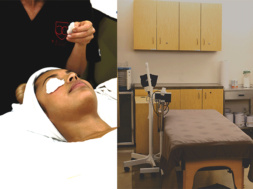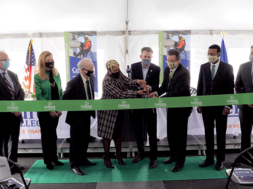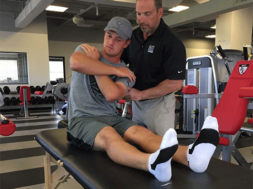
By Tina D. Barbour Taylor, Ph.D., MSN, RN, Fortis Institute Pensacola, Florida
In academics today, there is a great deal of buzz around the terminology of faculty mentoring. With all the noise floating around, it leads to questions such as: What is faculty mentoring? Why is faculty mentoring important? Can anyone start a mentoring program for faculty? Will it really help our program? Can an effective mentoring program save us money? Will a mentoring program help with academic success? To answer those questions, one must first understand exactly what faculty mentoring is.
There are many words associated with mentoring such as advising, coaching, role modeling, training, and teaching. However, faculty mentoring is so much more than all those combined. The Merriam-Webster.com Dictionary (2020) defines a mentor as “a trusted counselor or guide.” So, is that all a junior faculty member gets, someone who will guide them through the chaos of academia? Not at all.
A quality faculty mentor is not only someone who has been in the same shoes as a junior faculty member and succeeded in advancing to a senior position; a quality faculty mentor is also someone who has had training on how to advise and guide people and to engage people in setting and reaching their long-term goals.
It often reminds me of my dissertation chair, steering me through the ghastly hours of writing and re-writing just to finish the first three chapters of my prospectus, then piloting me through the rough waters of research, and finally reaching harbor at the end of chapter five. It takes talent, patience, good communication skills, and the ability to collaborate with others to help them reach their target and become successful.
You may ask: how does preparing someone to be a successful faculty member help a program become a success? Faculty mentoring supports faculty to produce their best work, thus providing a program and its students with a means to become successful. If a faculty member is successful and satisfied with their role, then student success follows. Not only does that faculty member become a role model to the students, but they also assist the students’ navigation through their academics. Each faculty mentor, therefore, has an important role to play in sustaining a supportive academic environment for the mentee.
Faculty mentoring can be both a formal and an informal endeavor. Formal mentorship is, as the name implies, very structured. A faculty mentor is assigned to the designated mentee based on their common goals and department. During the formal mentoring process clear goals are set, roles are defined, meeting structures and durations are established, communication modes are clearly identified, and outcomes are delineated. Formal mentorship focuses on promoting career outcomes such as compensation, promotions, as well as career satisfaction and commitment. In contrast, informal mentorship occurs as a result of commonality between the mentor and mentee with respect to career choices and career goals. The mentor-mentee relationship grows based on a mutual affinity. Informal mentorship focuses not only on building knowledge, but also on providing the much-needed psychosocial support to the mentee.
There are many roles at play in the mentor-mentee relationship. Faculty mentors are interested in developing a relationship with the mentee, promoting the mentee’s knowledge and scholarship, and providing psychosocial support that is needed for the mentee to become a successful faculty member – particularly one who is satisfied with their career. The faculty mentee should be respectful and open to communication. The mentee should take advantage of the opportunities and expertise being provided to them by the mentor. There are also other roles at play such as multiple mentors and interdisciplinary mentors. Multiple mentors are common within academic departments and usually yield higher effectiveness than a single mentor. Often, we see the dean and other faculty members join the efforts to collaborate and promote the success of the mentee. Interdisciplinary mentorship adds complexity to the mentor-mentee relationship. It promotes collaboration between disciplines and promotes networking outside of one’s comfort zone.
New and established faculty can benefit from the mentor-mentee relationship. Regardless of past experiences, mentees can learn from experienced faculty about the culture and protocols to their new environment. Advice on papers, proposals, syllabi, and tests can be helpful and improve teaching skills. Fostering collegiality increases productivity and effectiveness by improving new faculty career satisfaction. Career satisfaction leads to positive student outcomes. Not to mention, the mentor also gains benefits by contributing to the success of a colleague and possibly reinventing their own teaching strategies or style, as well as research interests.
Benefits to mentorship are significant, however, there are challenges that can hinder the development of the mentor-mentee relationship.
First, figuring out how to pair the mentor with the mentee is a task in and of itself. Often, faculty are so involved with student advising, research, teaching, and committee work that they do not have time to mentor effectively. There is a financial aspect to mentoring as well. Mentoring is not a cheap business in the short term, however, in the long term, it fosters retention and human resource savings. Other challenges you are faced with include variations in personalities, empathy, and intellect, along with psychosocial and gender differences. Add to that the “icing on the cake” – COMMUNICATION. Communication in any relationship can be complicated and complex. Not only do you have to navigate the communication pathway between the mentor-mentee, but also between the mentee and other faculty members, the department, the school, and the network. Effective communication is crucial in establishing a successful mentor-mentee relationship or capsizing it altogether.
That leaves just one additional question to be answered: how does a program start a quality mentorship program for its faculty? First, the dean and a faculty committee should develop a plan for a mentorship program. The plan should include goals for the mentorship program as well as determining the role of the mentor. The plan should also include the obligations of the mentor and mentee, as well as paying consideration to mentorship meetings, research, teaching, supervision, and service commitments. The plan should also include whether multiple mentors or interdisciplinary mentors will be a feasible option for the program.
Secondly, the program should establish an atmosphere for mentoring. This assists in providing a comfortable environment where information can be shared. It contributes to the development of familiarity within the program and the department. A climate for mentoring promotes an effective milieu by including the new faculty in events, research, seminars, and teaching experiences that will promote their growth as a faculty member.
Thirdly, a partnership agreement should be created for the mentor-mentee relationship. This agreement clearly defines the relationship and the expectation for each party involved. The agreement should be reviewed during the evaluation period and modified to reflect ongoing goals. This agreement should also delineate the termination process for the mentor-mentee relationship.
Fourthly, an evaluation system should be in place to determine the effectiveness of the mentor-mentee relationship. This type of review should be constructive and help the mentee reach their goals. It should include their strengths and areas of needed improvement. Evaluation is also a time to determine if the mentor-mentee relationship is working effectively or if changes need to occur. Typically, these evaluations should initially occur at six months to a year after the new faculty member is hired.
Lastly, not everyone is born to be a mentor. The program should establish regular mentor meetings for training and determining if certain faculty should opt-out of the mentoring process altogether. After all, it is all about the success of the program. And although some faculty members may be the greatest researcher, teacher, presenter of all time, they may not be cut out for the rigors of mentoring.
So, when it is all said and done, how can mentorship help a program obtain academic success? Not only does mentoring foster a future of academic excellence, but it also gives faculty the ability to put forth their best work. Constructive mentoring helps faculty meet the high standards and depth of scholarship that is needed to succeed in academia. Faculty can work collaboratively in a supportive environment that fosters promotion and effectiveness. Through mentoring, faculty are not only allowed to contribute to scholarly work and gain, but also foster learning within the community.
A successful mentoring program can encourage new faculty members to be creative and find contentment and satisfaction with their career.
Not only does having the support available assist the new faculty member to assimilate more rapidly in their role, but it also provides them with a sounding block on how to handle difficult situations. And when it comes down to the bottom line, retention is a huge issue for programs seeking quality faculty. If a faculty member is not satisfied with their current role, if they are not allowed to participate in research or stretch their knowledge, then they either become complacent – which carries over to the students – or they leave – which in turn costs the program extra money to go through the hiring and training process all over again. Although in the short term, mentoring can be very costly with arranging staff and faculty to support the mentee, in the end, it is an investment for the academic success of the program. Is it worth it? I would say yes!
Reference
Mentor. In The Merriam-Webster.com Dictionary. Retrieved January 21, 2020, from https://www.merriam-webster.com/dictionary/mentor
TINA D. BARBOUR-TAYLOR is a nursing instructor and academic coach at Fortis Institute in Pensacola, Florida. Tina is an active faculty member at Fortis Institute performing functions such as faculty mentoring, assisting with course development, and providing needed resources to students and faculty. Her research has included her dissertation work “The Effects of Nursing Program Simulation Experience Level and Type of Advanced Organizer on Clinical Judgment Performance, Satisfaction, Self-confidence, and Perceived Cognitive Load of Pre-licensure Nursing Students in Simulation Based Learning.” She has presented research on “The Effects of Advanced Organizers and Cognitive Load on Clinical Judgment Performance of Pre-licensure Nursing Student in Simulation-based Learning” at the Mississippi Nurses’ Foundation Annual Conference in 2019 and her research on “Effects of Experience Level and Cognitive Load on Clinical Judgment in Simulations” has been accepted to be presented at the ATI National Nurse Educator Summit in Seattle, Washington during April 2020.
Recognized for her commitment to nursing education, she received the Five-Star Faculty award from Fortis Institute in 2019 and was a recipient of the 2019 Circle of Excellence Award in Nursing from Educational Affiliates.
She received her Bachelor of Science in Nursing from the University of Mobile in Mobile, Alabama. She furthered her education by completing her Master of Science in Nursing Administration/Education from the University of Mobile; and her Ph.D. in Instructional Design and Development from the University of South Alabama in Mobile, Alabama.
Contact Information: Tina D. Barbour-Taylor, Ph.D., MSN, RN // Nursing Faculty/Academic Coach // Fortis Institute // 4081 E. Olive Road, Suite B, Pensacola, Florida 32514 // 850-476-7607 // TTaylor@fortisinstitute.edu











